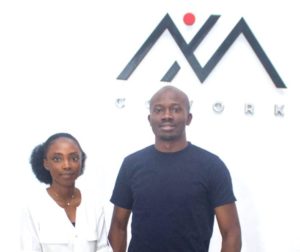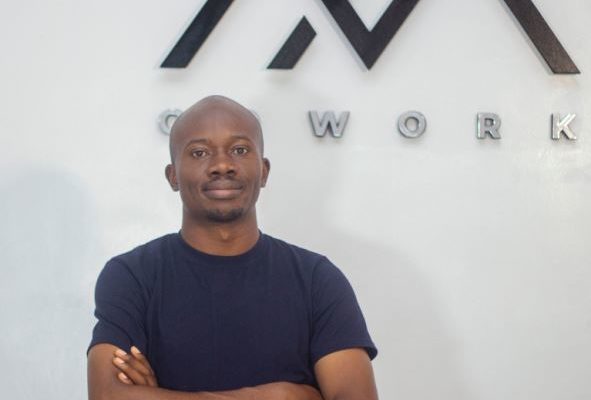
Nnamdi Ibe with Nana Timothy
Nnamdi Ibe, CEO and Founder of Axia Technology and Innovation Hub (Axia Hub), sits down with Nana Theresa Timothy to discuss the launch of their new coworking space and the unique challenges of growing a tech hub outside Nigeria’s major urban centres. He also shares insights on how Nigeria can more effectively embrace emerging technologies like Artificial Intelligence (AI), and the need for inclusive tech development across the country. Axia Hub aims to drive innovation in underserved regions, fostering a stronger, more diversified tech ecosystem.
RELATED: Axia Technology Hub expands incubation footprint in Jos, empowering Nigerian entrepreneurs
Axia Hub’s newly launched coworking facility offers a conducive environment for tech and creative entrepreneurs in Jos. How does your hub create an environment that encourages collaboration and cross-pollination of ideas between entrepreneurs, developers, and other stakeholders?
Collaboration is at the heart of this space, designed to foster the exchange of ideas and facilitate meetups. We promote an atmosphere of open communication while respecting individual boundaries. Supporting entrepreneurs requires providing the foundational resources they need to grow. In this region, certain essentials are often lacking. For entrepreneurs to succeed, they need an environment that offers adequate support. The hub helps bridge this gap by providing essential services like high-speed internet and a reliable power supply, connecting entrepreneurs to global opportunities.
“We’ve incubated several startups that have gone on to make significant impacts in various sectors, including defense.”
How has the hub contributed to the growth and development of local tech talents?
First, we’ve incubated several startups that have gone on to make significant impacts in various sectors, including defense. One of our incubated startups has transformed the transportation sector, particularly inter-state travel. We’ve also supported startups in e-commerce and logistics. Secondly, our initiatives have had a strong focus on education. One of our notable programs is the ‘Community Delivery Innovation’, which targets secondary schools and higher institutions. We engage students, spark their interest, and provide support to help them move from theoretical learning to practical problem-solving. Through this, we’ve reached around 30 to 35 schools, empowering them to create real-world solutions.
Hubs in cities like Lagos and Abuja often have easier access to funding and support. What strategies can be employed to level the playing field for innovation centres in cities like Jos?
It’s true that the southern part of Nigeria has seen significant technological success due to early adoption, giving them an advantage in securing funding from foreign investors and sponsors. However, funding isn’t the only benefit institutions like ours can receive. By focusing on our internal systems, initiatives, and fostering our own creatives, entrepreneurs, and technologists, we can gradually shift value in this direction over time.
With the increasing adoption of AI in various industries, what do you see as the future of software developers in Nigeria?
I’ve been quite concerned about AI. While I don’t believe AI will eliminate jobs, I am worried about our initial response to it. My research into AI adoption in the West shows that, in Nigeria, we often focus on consuming AI products rather than on production and research. For example, many people view ChatGPT as the entirety of AI, but it’s actually a product of extensive research. We should shift our focus towards the technologists who drive AI innovation, rather than just the products themselves.





























